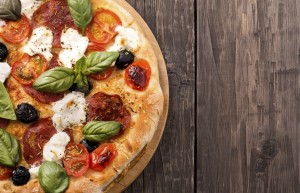Richard Leong, CEO of Pizza Hut Hong Kong, started out as a restaurant proprietor before forging a career in marketing — so he was the ideal person to sit down with Ogilvy & Mather PR’s Managing Director Clara Shek at Hong Kong’s Top 1000 Brands event to talk food branding.Changes in consumer behaviour, which in turn are driven by advances in technology, are the primary propelling force behind change in Leong’s business. Expectations are up and patience is down thanks to an on-demand culture, and Leong cites apps as a prime space where brands can cater to this hunger for convenience and create all kinds of value-add, from being able to share loyalty points with your friends to using an express lane instead of queuing.Leong is the first to admit that the marketing landscape has changed dramatically since Pizza Hut was his client eight years ago. So much, in fact, that he has two IT Managers; one to focus on customer experience and the other for traditional back-end development. He jokes that if either of them must have a workplace affair, he has requested that it be with each other; “if they must, to make it work.”
One of the greatest challenges Leong has faced since stepping into the role of CEO last year has been time. Or rather, the lack thereof; Pizza Hut’s “very tight” marketing calendar is already full right through to the end of 2016. “Hong Kong is a very demanding market,” he explains. “They want to see new things every two months.” Which doesn’t sound too bad, until he goes on to add that it takes 18 months to develop new concepts, and every product has the potential to go horribly wrong — what worked in Taiwan or Dallas might tank in Hong Kong.“Some products might be polarising,” he says, in which case he has to decide whether to sell it or not and try to predict whether it will be a hit in over a year’s time. The pressure is intense; he has found first-hand in the past that if you launch the wrong product, sales can plummet. Which is why he holds “ideation sessions,” where he invites chefs and agencies from all over the world to bounce around ideas (during which he will eat at least 50 pizzas).
“Food is all about detail and understanding trends,” Leong says. But don’t be too trendy, he warns; marketing to millennials is one thing, but brands need to take a long look in the mirror first and remind themselves who they are; “You can’t try overnight to be something you’re not.” In his experience, doing a 180 on your brand identity does nothing for driving sales or building repeat business.
“Food is all about detail and understanding trends,” Leong says. But don’t be too trendy, he warns; marketing to millennials is one thing, but brands need to take a long look in the mirror first and remind themselves who they are; “You can’t try overnight to be something you’re not.” In his experience, doing a 180 on your brand identity does nothing for driving sales or building repeat business.
When asked what advice he can impart from a restaurateur’s perspective, Leong urges food brands to resist the urge to be reactive when faced with disappointing sales. “We understand it’s about building business, and when business is tough, you will try a lot of knee-jerk actions to build traction.” But constant offers, promotions and discounts aren’t a lasting solution, and can actually devalue brand perceptions. As Leong puts it; “We don’t want to be a cheap date!”
